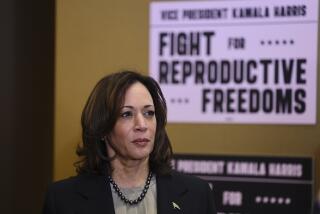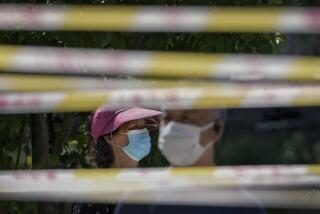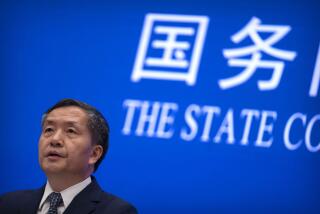China’s first lady focuses on global health in visit to Seattle cancer center
SEATTLE As her husband headed to Boeing in Everett, China’s first lady, Peng Liyuan, focused attention on the global-health problems of HIV infection and tobacco use during a hush-hush visit Wednesday to a Seattle cancer center.
Peng, 52, spent the morning touring the Fred Hutchinson Cancer Research Center, a trip kept secret until after she left the center just after 11 a.m.
Accompanied by Bill and Melinda Gates, the wife of Chinese President Xi Jinping smiled and nodded as she heard about efforts to find a vaccine to fight the virus that causes AIDS and research into the most promising ways to help smokers quit.
“Your contributions have given humanity a chance to live longer and better lives,” she told researchers, scientists and other officials gathered for the event.
Peng was there at the invitation of Washington Gov. Jay Inslee, who reached out to both parties to arrange the visit, according to Fred Hutch president Dr. Gary Gilliland. Since 2011, Peng has served as the World Health Organization’s Goodwill Ambassador for tuberculosis and HIV/AIDS.
Fred Hutch has a robust relationship with China, Gilliland said. Scientists at the Seattle site have had strong research agreements in place for decades, including a partnership that allows testing of tumors from patients at China’s Henan Cancer Hospital.
“We are as far along as any of the universities in the U.S. in terms of establishing longstanding relationships with China,” Gilliland said.
Peng, a former opera and folk singer, has worked for nearly a decade as an AIDS activist in China. In China, a country of 1.3 billion, at least 437,000 people are living with HIV and AIDS, according to a 2014 report by the country’s National Health and Family Planning Commission. About 136,000 people died from AIDS in China in 2013, the report said.
Although the prevalence is low, the impact of the disease is high, particularly in groups such as sex workers and drug users, and stigma toward those infected, including children, runs deep, experts said.
Peng visited the labs of the Fred Hutch HIV Vaccine Trials Network, or HVTN, the world’s largest publicly funded, multidisciplinary international collaboration working to develop vaccines to prevent HIV/AIDS. She was accompanied on the tour by Dr. Julie McElrath, a principal investigator at the HVTN center.
Peng had requested to see the cancer labs and to visit lab workers at their posts, including John Hural, associate director for laboratory operations, who paused in his work overseeing quality control for cell samples collected all over the world.
In addition to the HVTN visit, she heard from Jonathan Bricker, a Fred Hutch expert in smoking cessation and creator of SmartQuit, a stop-smoking app validated in clinical trials. He offered insight into the problem that affects the more than 300 million smokers in China, nearly one-third of the world’s total.
If SmartQuit were tested in China, it could help 16 million people stop smoking in that country each year, Bricker told Peng.
That attracted the attention of the first lady, who said that in addition to her public-health concerns for her country, she has a personal interest in preventing cancer in family members who use tobacco.
“I really hope they can find a better way to quit smoking,” she said.
Her remarks and her willingness to consider new health partnerships between the U.S. and China were heartening, Bricker said.
“I’m elated by her response,” he said. “I think something real will come of this.”
(c)2015 The Seattle Times
Visit The Seattle Times at www.seattletimes.com
Distributed by Tribune Content Agency, LLC.
More to Read
Start your day right
Sign up for Essential California for news, features and recommendations from the L.A. Times and beyond in your inbox six days a week.
You may occasionally receive promotional content from the Los Angeles Times.






